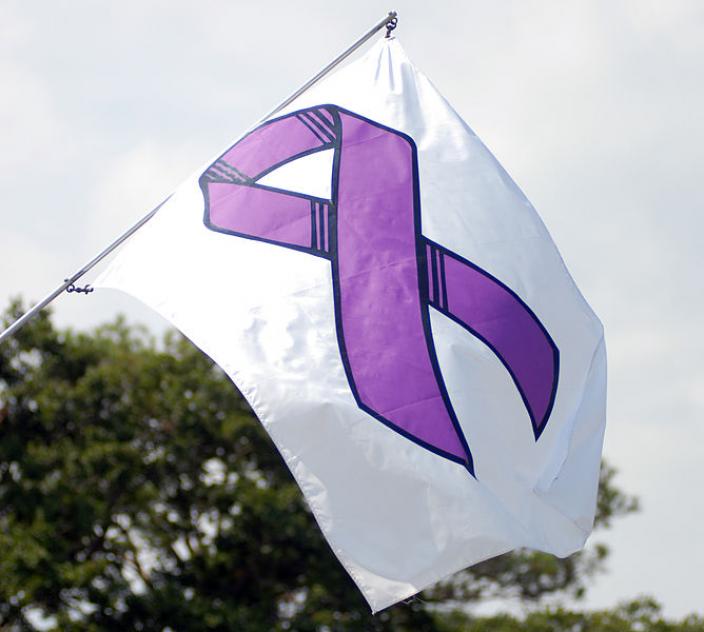
This week’s Voices is written by Jennifer Mager who is a 2nd year rabbinical student at HUC-JIR in New York. Jennifer is one of 6 students who are receiving YES Fund scholarships this year from WRJ.
In this week’s parashah, Korach incites rebellion, rallying the Israelites against the leadership of Moses and Aaron. Korach, Dathan, and Abiram, together with 250 leaders of the community, rise up against Aaron’s exclusive right to the priesthood and criticize Moses’ leadership. The parashah unfolds with the terrifying details of their punishment; the earth opens its mouth and swallows them alive. The earth closes over them and they vanish completely from the community. It is startling and troubling to think about the harsh, unforgiving response to the uprising. Could this parashah be a lesson about submission to authority? Aren’t protest and civil disobedience viewed as positive expressions of social justice in our tradition? Argument and diversity of opinion are deeply valued in Jewish tradition. Freedom of speech and the ability to express opposing views are essential elements of a democratic society. Not only do I have a right to voice my views about the actions of my leaders, I feel an obligation to speak out against injustice. What was so egregious about Korach’s rebellion that warranted such a horrifying punishment?
In the Mishnah, Korach’s rebellion is held up as the definition of wrongful dissent.
“Any dispute for the sake of heaven will have enduring value, but every dispute not for the sake of Heaven will not have enduring value. What is an example of a dispute for the sake of heaven? The dispute between Hillel and Shammai. What is an example of one not for the sake of heaven? The dispute of Korach and all his company.” (M. Pirkei Avot 5:17)
How can we discern between holy and wrongful protest? This parashah reveals the importance of considering the motivation behind the voice of dissent. A voice speaking from within the community and expressing loving criticism with the intention of lifting us all up, this is argument for the sake of Heaven. A voice that stands apart from the community and criticizes out of self-interest and personal ambition is the form of dissent that is destructive. Korach tore the community apart as he inflamed the Israelites’ discontent simply to diminish his opponents.
The parashah opens with “וַיִּקַּח קֹרַח” – “Korach took”. Rashi and Onkelos interpret the meaning of this verb “to take” as he took himself from the community; he separated himself from the community in order to persist in the dispute. Korach scorned Moses and Aaron out of jealousy, injured pride, and the desire for power. Feeling passed over, he struggled with the fact that leadership authority that had been granted to others instead of him. There are times when we can all identify with our own inner-Korach. The defining moments in life are when we face rejection, disappointment, and failure. We have a choice as to how to respond to situations in which things did not turn out the way that we had hoped or planned. This parashah brings an important lesson about how to work through our narrow places of self-doubt, fear, and hurt. Rather than isolating ourselves, it is essential that we reach out to others and bring ourselves into community.
Moses and Korach offer two strikingly contrasting models for how to lead in crisis. Moses demonstrates humility and selfless concern for others. He trusts in God. He continuously advocates for the community. Moses acts out of concern for the community as a whole. Korach acts out of arrogance, destructive criticism, and the desire for power.
While Korach’s motives were out of self-interest, there are protests driven by an entirely different kind of motivation, concern for the broader community. The Women’s March on New York City was a pivotal moment for me. When I got on the subway to Midtown that morning, I could not have imagined the number of people or the intensity of emotions that the experience would elicit. I saw many diverse groups come together. People concerned about immigration reform, healthcare, freedom of religion, the environment, LGBTQ rights, and women’s rights all marched side-by-side. While our signs may have focused on different issues, we were all clearly concerned with coming together with the broader community. From the midst of anger, fear, and uncertainty arose a groundswell of empowerment and confidence. As waves of people marched through the streets, I felt a sense of connection and comfort in the awareness that I was a part of a larger community. The Women’s March brought communities together as we voiced our protest as well as our shared dreams for the future. It restored my hope and my pride in being an American. This experience exemplifies the power of protest to empower and energize communities. The Women’s March sparked an ongoing movement of activism in which people recognize that their voice can make a difference. What separates this form of protest from negative protest is two-fold. First, it is fueled by concern for the broader society as a whole. Secondly, the protest brings together diverse groups and seeks connection.
I learned from the Women’s March that our voice is potent and that it needs to serve the community. This week’s parashah could have easily read “the earth broke apart” but it specifically stated that “the earth opened its mouth”, as if to express disapproval of how Korach used his voice. We need to use our voices to bring about positive changes from within our community.
Related Posts

Parashat Yom Rishon shel Rosh HaShanah

Cultivating a Culture of Accountability and Belonging

